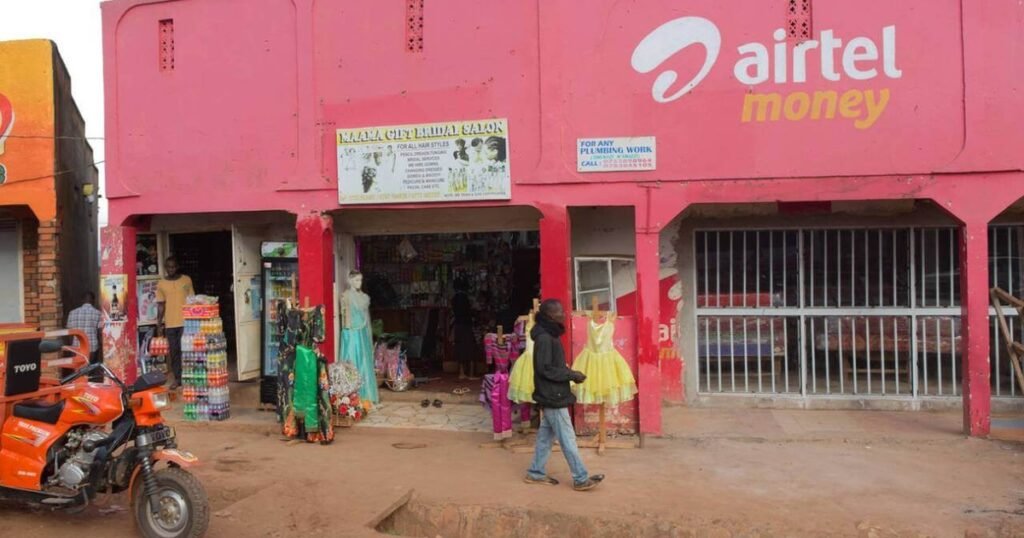Airtel Africa’s customer base across Africa grew by 6.1% in the past year to 156.6 million, while the group’s revenue in the first six months of the financial year was It decreased by almost 10% due to currency devaluation.
This follows the pan-African telco’s interim results for the six months ending September 30, 2024, released on Friday.
The telecommunications company operates in 14 countries in Africa, primarily in East, Central and West Africa.
At Airtel Africa, the number of data customers increased by 10.4% year-on-year to 66 million, and data usage per customer increased by 30.9% to 6.6 GB.
The group’s smartphone penetration rate increased by 5.3% from the previous year, reaching 42.9% of the base.
Airtel now has 41.5 million mobile money subscribers, up 13.4% year-on-year, reflecting “continued investments in distribution to support greater financial inclusion across markets” The company said it is doing so.
Mobile money transaction value increased by 30.1% in the six months on a constant currency basis, reaching $128 billion in annual transaction value.
Average revenue per data user (ARPU) increased by 13.5% and mobile money ARPU increased by 10.9% at constant currency. This resulted in an 11.1% year-over-year increase in overall ARPU on a constant currency basis.
Impact of currency devaluation on financial performanceCurrency devaluation, particularly in Nigeria, affected the group’s revenue, which fell 9.7% to $2.37 billion in the half. If currency rates remained constant, sales would have increased 19.9% year over year.
“The difference between net currency revenue and reported currency revenue growth is primarily due to the average devaluation of the Nigerian Naira, Malawi Kwacha, Zambian Kwacha, and Tanzanian Shilling for each period. , partially offset by the appreciation of the Kenyan shilling,” the telco said in an earnings statement.
This also affected operating profit, which decreased by 20.3% to $706 million.
Airtel Africa reported a similar decline in revenue in its full-year results for the year ended March 31, 2024, also due to the impact of currency depreciation.
For the six months to September 2024, Airtel Africa’s reported mobile services revenue also fell 12.6% to $2 billion, but rose 18.4% constant currency.
Mobile money revenue increased by 11.9% in reported currencies. At constant currency, Mobile Money revenue increased by 28.8%. This was driven by 31.4% revenue growth in East Africa and 20.2% growth in Francophone Africa.
Earnings before interest, tax, depreciation and amortization (EBITDA) margin fell to 45.8% from 49.6% in the first half due to a significant increase in fuel prices across the market and a decline in Nigeria’s contribution to the group following the devaluation of the Naira. .
Over the six-month period, constant currency EBITDA increased 13.5%, while reported currency EBITDA decreased 16.5% to $1.09 billion.
Earnings after tax of $79 million were impacted by exceptional derivative and foreign exchange losses (after tax) of $151 million resulting from further depreciation of the Nigerian naira during the period.
“The scale of the opportunity across our markets remains substantial: our young population is growing rapidly, while SIM and banking penetration is low, while smartphone and banking penetration is low across our existing base. Coupled with the increasing adoption of digital payments, this is a unique opportunity to leverage our extensive infrastructure for sustainable growth in sub-Saharan Africa,” said Airtel Africa CEO Sunil Taldar. I am.
“Demand for our services remains strong and we have already made significant progress, with FX fixed revenue growth accelerating last quarter. “This is reflected in a 48% increase in the amount of data in our market,” he added.
Airtel Africa CEO Sunil Taldar. (Source: Airtel Africa)
Capital expenditures (capex) for the year were $316 million, an increase of 1.3% from the prior period. Airtel said its full-year capital expenditure outlook remains in the range of $725 million to $750 million as it continues to invest for future growth.
The group said: “With continued network investment during the period, customer experience remains core to our strategy. With over 2,800 sites and approximately 3,500 kilometers of fiber deployed, data capacity across the network has increased by 20%. I did,” he said.
We also significantly reduced our foreign currency debt exposure during the year, repaying $809 million of foreign currency debt.
The Board of Directors announced an interim dividend of US$2.6 per share, an increase of 9% year-on-year.
In January 2024, Airtel Africa announced the retirement of CEO Segun Ogunsanya and the appointment of Sunil Taldar as the new CEO. Mr. Talder joined Airtel Africa in October 2023 as Director of Transformation and assumed the role of CEO on July 1, 2024.

